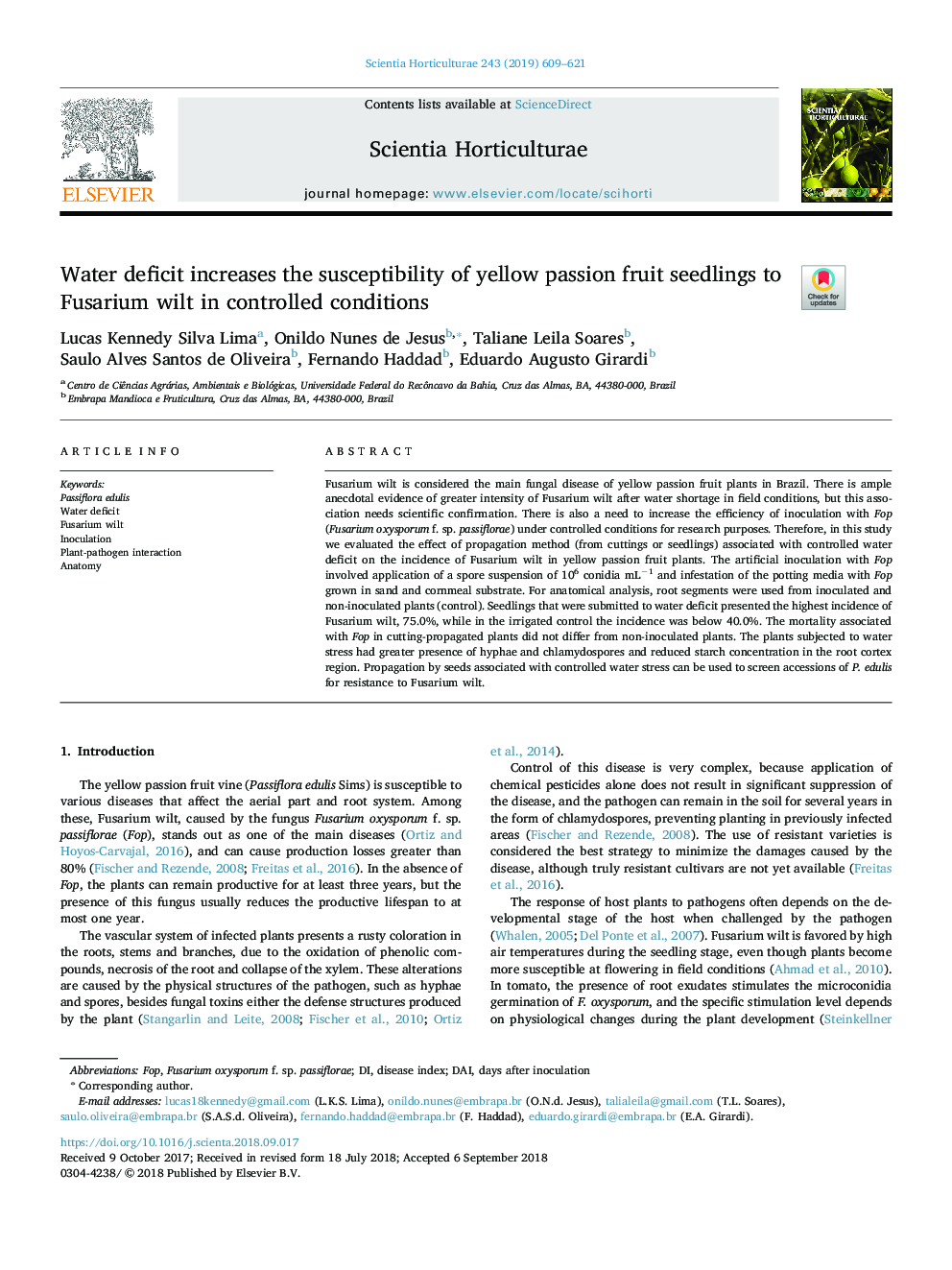| Article ID | Journal | Published Year | Pages | File Type |
|---|---|---|---|---|
| 10118060 | Scientia Horticulturae | 2019 | 13 Pages |
Abstract
Fusarium wilt is considered the main fungal disease of yellow passion fruit plants in Brazil. There is ample anecdotal evidence of greater intensity of Fusarium wilt after water shortage in field conditions, but this association needs scientific confirmation. There is also a need to increase the efficiency of inoculation with Fop (Fusarium oxysporum f. sp. passiflorae) under controlled conditions for research purposes. Therefore, in this study we evaluated the effect of propagation method (from cuttings or seedlings) associated with controlled water deficit on the incidence of Fusarium wilt in yellow passion fruit plants. The artificial inoculation with Fop involved application of a spore suspension of 106 conidia mLâ1 and infestation of the potting media with Fop grown in sand and cornmeal substrate. For anatomical analysis, root segments were used from inoculated and non-inoculated plants (control). Seedlings that were submitted to water deficit presented the highest incidence of Fusarium wilt, 75.0%, while in the irrigated control the incidence was below 40.0%. The mortality associated with Fop in cutting-propagated plants did not differ from non-inoculated plants. The plants subjected to water stress had greater presence of hyphae and chlamydospores and reduced starch concentration in the root cortex region. Propagation by seeds associated with controlled water stress can be used to screen accessions of P. edulis for resistance to Fusarium wilt.
Keywords
Related Topics
Life Sciences
Agricultural and Biological Sciences
Horticulture
Authors
Lucas Kennedy Silva Lima, Onildo Nunes de Jesus, Taliane Leila Soares, Saulo Alves Santos de Oliveira, Fernando Haddad, Eduardo Augusto Girardi,
